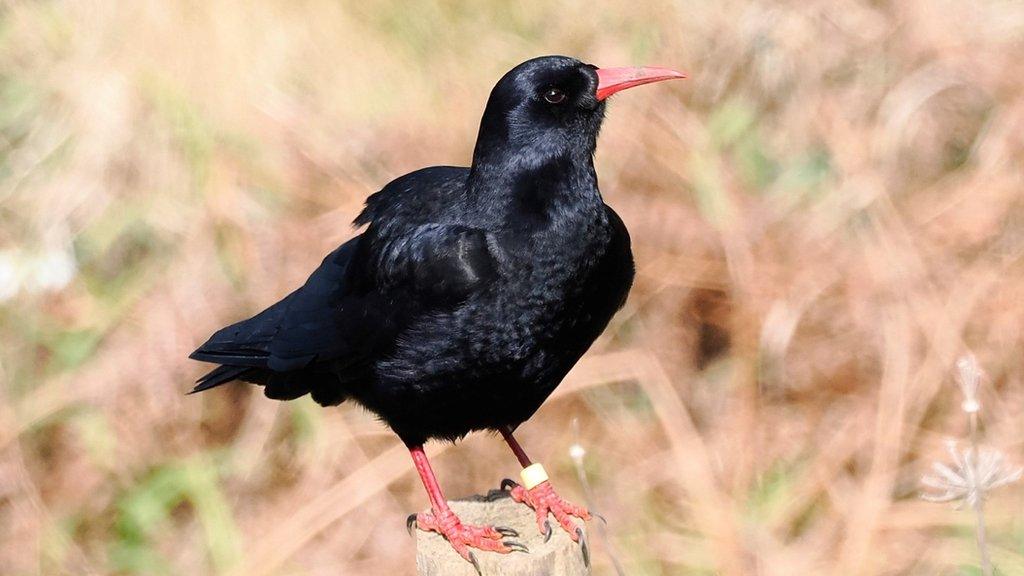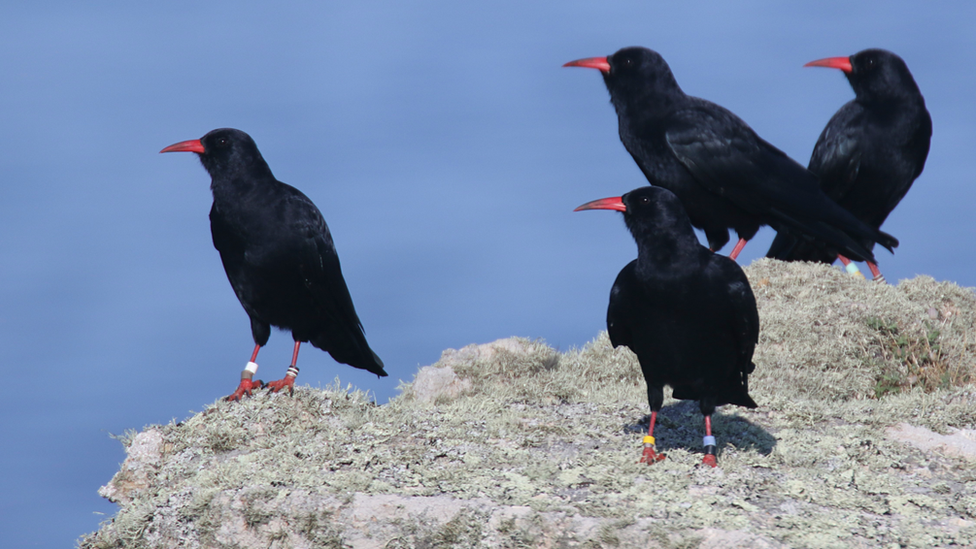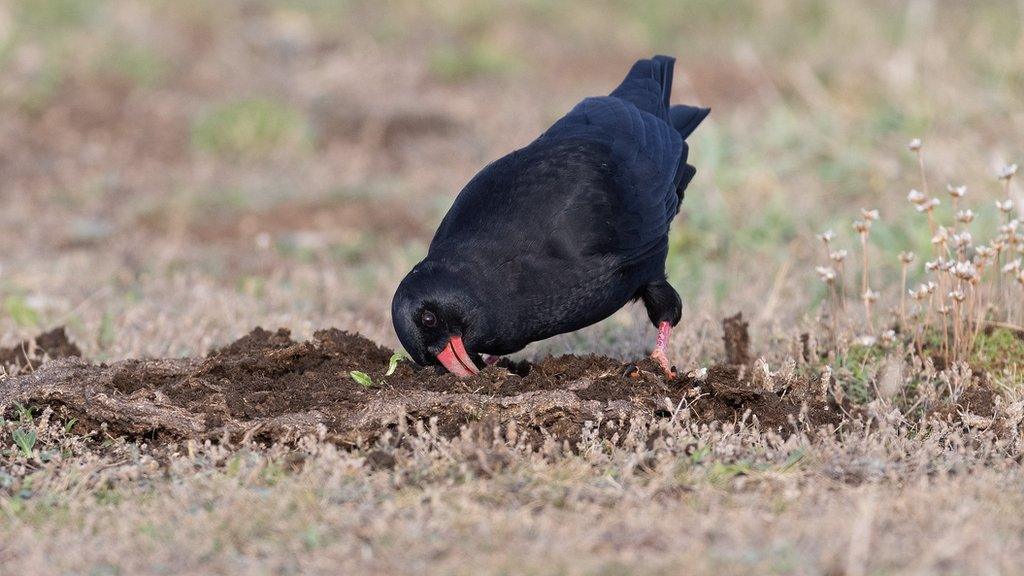Cornwall choughs: Birders asked not to reveal nest locations
- Published

Cornwall Birds wants people to log any sightings of the bird
Bird watchers in Cornwall should not post the location of choughs' nests on social media in a bid to stop eggs from being stolen, conservationists have said.
The conservation charity Cornwall Birds said nests were vulnerable during the current nesting and breeding season.
Fledgling chicks of the Cornish chough are expected from May. The bird features on the county's coat of arms.
Taking wild birds' eggs is illegal under the Protection of Birds Act 1954, external.
Hilary Mitchell, from the Cornwall Birds charity, said: "It's really important that if people see what they think is a [breeding] pair near a nest site... please tell us but don't put it out on social media.
"[Illegal] Egg collectors are still out there and our birds are still vulnerable to that."
Speaking to BBC Radio Cornwall, she said that if anyone did see a nest they could get a glimpse of the building process "if they're lucky".
She added: "People might see chough's flying down the cliff carrying a bit of heather twig or a bit of grass or wool later in March."
Completely extinct
She said the birds mate for life with the female laying "anything up to five eggs" within 24 hours of the mating process before incubating the eggs "while the male has to do all the feeding throughout about three weeks".
Choughs became completely extinct in Cornwall during the mid-20th Century after a loss of habitat.
As a result of a breeding pair arriving in the Lizard in 2001, the first wild choughs to hatch in more than 50 years in Cornwall did so the following year.
Cornwall Birds said the population was now in excess of 200, with 112 chicks fledging in 2023.

Follow BBC Cornwall on X (formerly Twitter), external, Facebook, external and Instagram, external. Send your story ideas to spotlight@bbc.co.uk, external.
- Published27 July 2023

- Published13 January 2024
